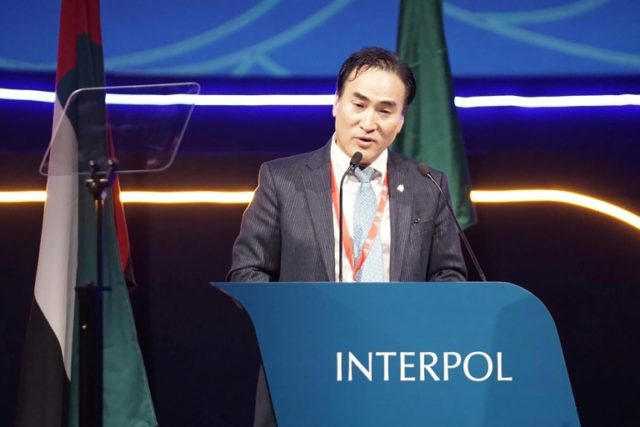International law enforcement organization Interpol elected a new president on Wednesday, and the results were a welcome surprise: South Korea’s Kim Jong-yang defeated the heavily-favored Russian candidate, Maj. Gen. Alexander Prokopchuk, by a vote of 101 to 61 at the Interpol General Assembly in Dubai.
The Wall Street Journal reported that Kim’s election did not completely alleviate concerns about the abuse of Interpol by authoritarian regimes like Russia and China – which essentially abducted the previous Interpol president while he was on vacation and later charged him with corruption in his capacity as a Chinese official – but reformers expressed relief that the position did not go to Russia’s man in the race:
In recent days, Western officials, including in the U.S., raised alarm over the candidacy of Maj. Gen. Alexander Prokopchuk, a veteran Russian interior minister.
Pointing to Moscow’s record of using Interpol warrants to target dissidents, they worried Mr. Prokopchuk could facilitate the Kremlin’s use of Interpol arrest warrants, known as red notices, to go after political opponents. A letter from a group of U.S. senators said appointing Mr. Prokopchuk would be “akin to putting a fox in charge of a henhouse.”
Moscow expressed regrets over the outcome of the election and implied certain other countries meddled in the outcome, although Kremlin spokesman Dmitry Peskov came up short of “questioning the legitimacy” of Kim’s victory.
“Of course, it is a pity that our candidate did not win. On the other hand, if we look at some statements from a number of countries on the eve of the election impartially, of course, the pressure was huge, that’s obvious,” said Peskov.
Peskov was much blunter about where that “pressure” came from on Tuesday, when he blasted U.S. senators for writing an open letter to President Donald Trump urging him to oppose Prokopchuk. The bipartisan authors of the letter warned that Prokopchuk could use the presidential office to “further institutionalize the abuse of Interpol red notices and block ongoing efforts at meaningful reform.”
Red notices are effectively Interpol’s version of an arrest warrant. Persistent Kremlin critic Bill Browder welcomed Prokopchuk’s defeat, saying the next reform step should be suspending Russia from Interpol entirely due to its “consistent and serial abuse of the Red Notice diffusion system for political purposes.”
Peskov on Tuesday railed against the letter as “some kind of meddling in the electoral process in elections to an international organization.”
U.S. Secretary of State Mike Pompeo also spoke strongly in favor of Kim Jong-yang. “We encourage all nations and organizations that are part of Interpol and that respect the rule of law to choose a leader of credibility and integrity that reflects one of the world’s most critical law enforcement bodies. We believe Mr. Kim will be just that,” Pompeo said on Tuesday.
Kim, 57, has been the acting president of Interpol since the disappearance of his predecessor Meng Hongwei. Before that, he was senior vice president of Interpol and served as chief of police in South Korea’s most heavily populated province of Gyeonggi.

COMMENTS
Please let us know if you're having issues with commenting.